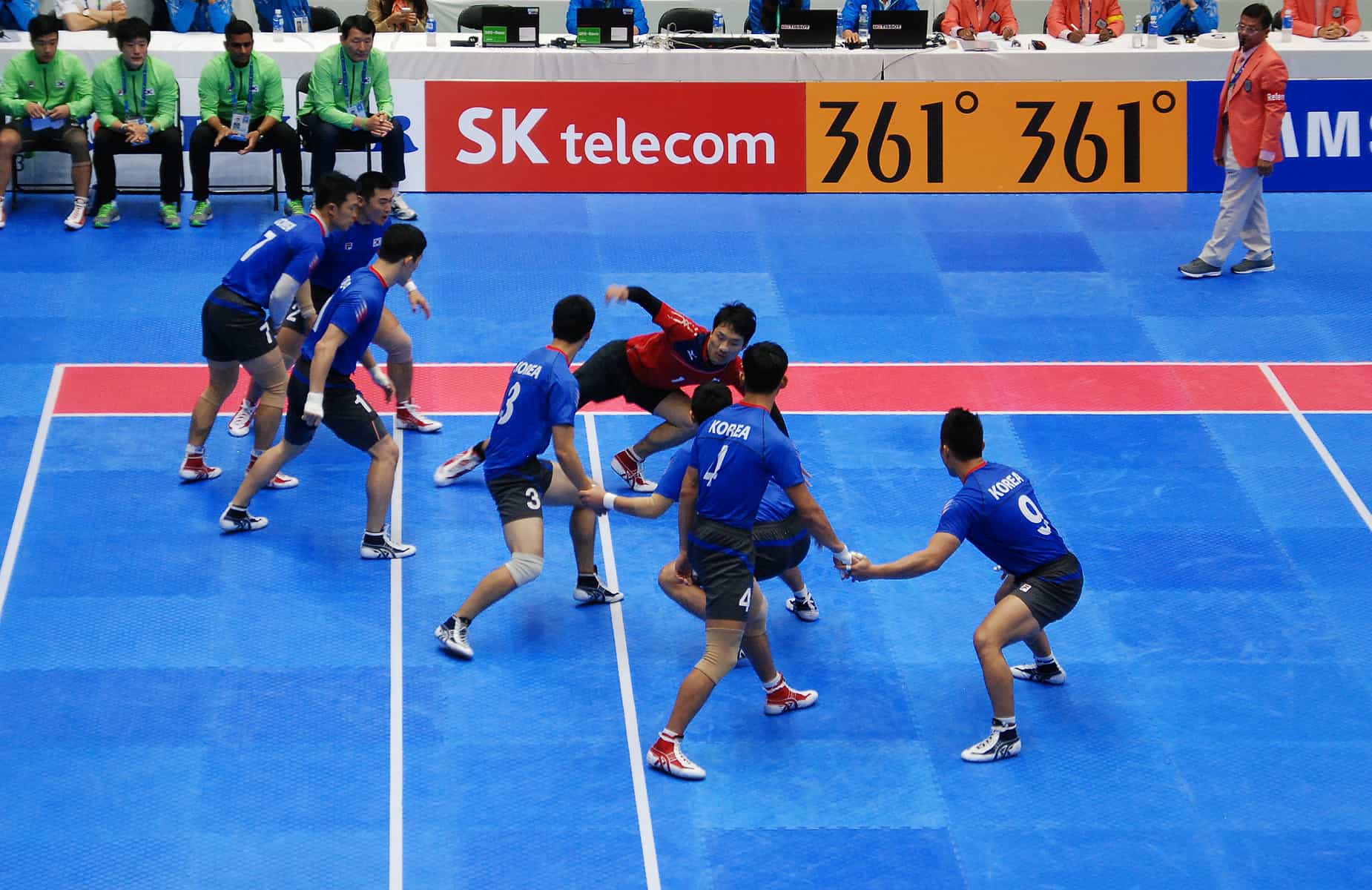The world of sport is far more diverse than what you see offered at sports bars. This series will profile the lesser-known, the more interesting, and the downright peculiar sports that you haven’t heard of until now.
One of the greatest things about sports is their ability to showcase athletes’ physical capabilities. Whether it’s a jaw-dropping hit, an undressing juke, or a play executed with masterful precision, these displays of skill and talent captivate us. Against a simplistic backdrop and without any equipment, Kabaddi is a perfect example of a sport that displays athletes’ raw physicality.
Kabaddi is an ancient Indian sport that has remained a popular pastime in South Asia and holds a place within the culture. Kabaddi has only recently migrated out of the local region and gained notoriety on a worldwide scale.
Even though there are variations of the game, the main rules are simple. Each team occupies one side of a court, and they take turns sending one ‘raider’ at a time into the opposing team’s side of the court. Raiders earn points for their team by crossing the mid-court line, tagging an opponent and returning to their respective side without getting hit. But if the raider gets tackled before he can make it back, the point is rewarded to the tackling team.
The beauty of the sport lies in its simplicity. No additional equipment is needed, just two teams and a playing field. It is reminiscent of childhood games like tag or red rover but with the athleticism and talent typical of a professional sport. Strength, speed, and agility take priority over top of the line gear. The players and how they move are the sport’s sole focus.
There have been two previous Kabaddi World Cups, one in 2004 and one in 2007. And as of October 7, the third such contest is now underway in Ahmedabad with 12 nations competing for the title. A professional league, the Pro Kabaddi League, was formed in India in 2014 and has since provoked increased interest in the sport.
If you want to watch Kabaddi, World Cup games are available on YouTube. Or, you may be able to find local tournaments and watch as contestants juke, tackle, and attempt to score points.


